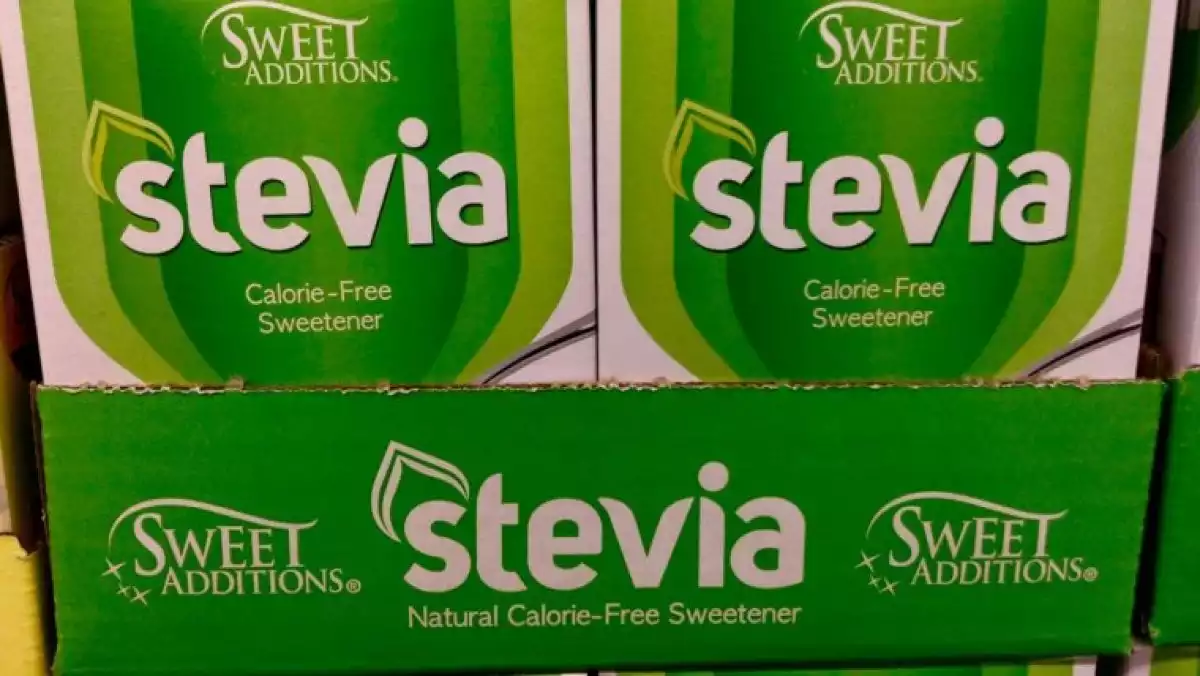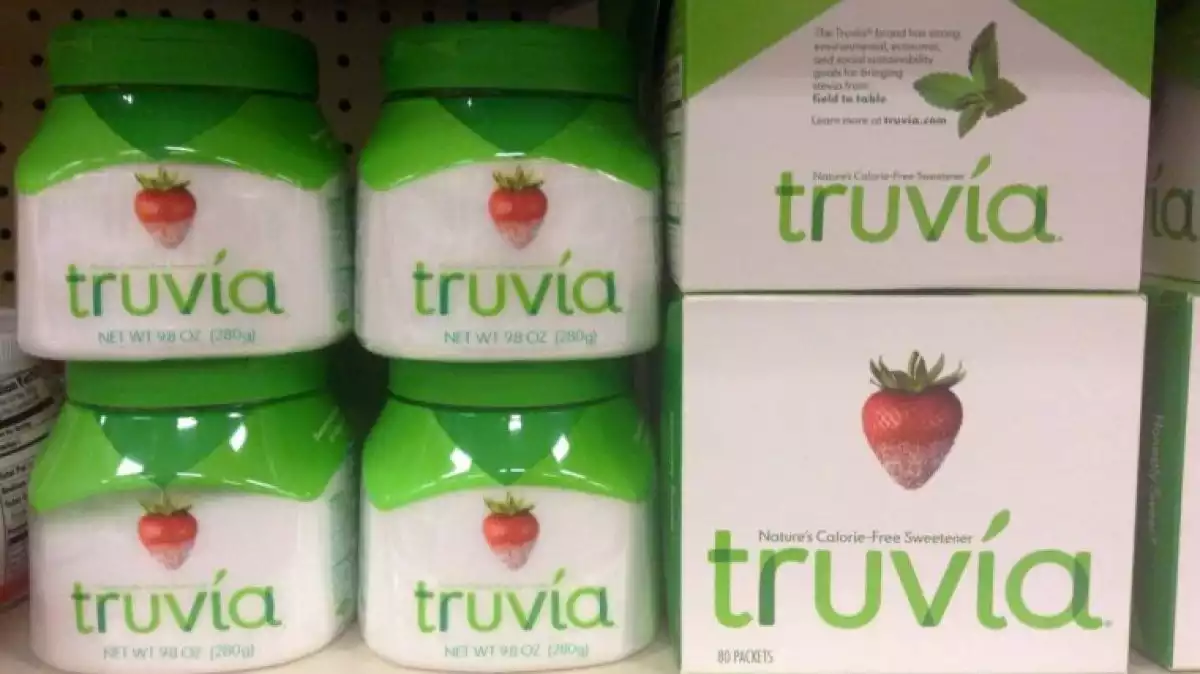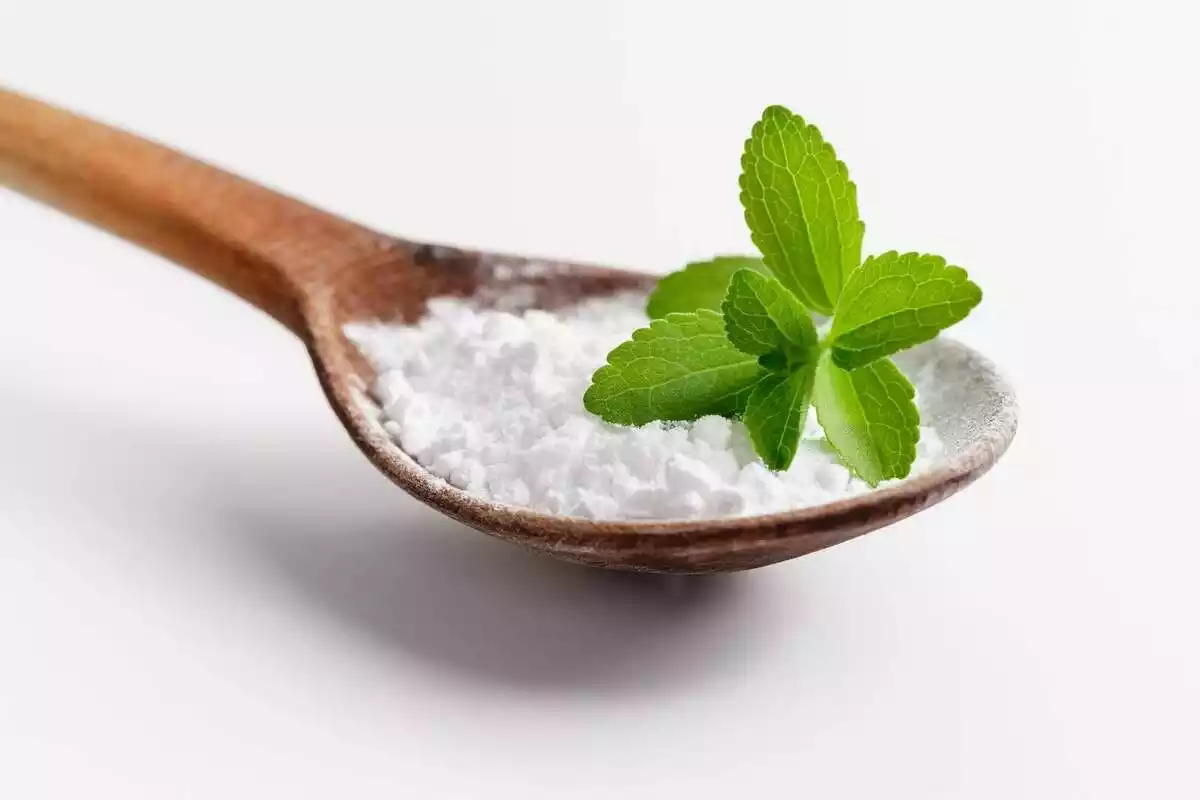Stevia is a plant that is being used as a natural sweetener and can be found in either liquid or solid form. A natural product, it is regarded as a superfood that could potentially replace sugar. Is stevia really beneficial? Does it not have side effects and counterindications? The consensus is that stevia sweeteners are less harmful than processed sugar and have a better overall impact on our health.
It is also believed that using this plant can help us lose weight and even cure diabetes. We will analyze the true properties of stevia plant-based sweeteners and their compounds (steviol and erythritol, responsible for the sweet taste), as well as explain the benefits and potential side effects of stevia use. Finally, we will try to debunk the many myths about stevia that have become extremely popular.
What is stevia?
Stevia rebaudiana is a plant species in the genus Stevia of the sunflower family, commonly known as candy leaf, sweet leaf, or sugar leaf. Other plants in the same family include the daisy, dandelion, dahlia, marigolds, and sunflowers. The plant is originally from South America, and it thrives in tropical and wet climates, although some wild species favor semi-arid environments.
Paraguay and Brazil are two countries that have used the leaves of stevia for more than a millennium. The Guaraní people, indigenous people of Paraguay, call stevia by the name “ka’a he’ẽ” which means "sweet herb" and it is pronounced “caá jeé.” Traditionally, these cultures have used stevia primarily as a sweetener for yerba mate infusions, a traditional South American caffeine-rich infused drink, but also as a natural remedy.
From ka’a he’ẽ to Stevia rebaudiana
After the arrival of the Spanish in the Americas in the 1500s, the “ka’a he’ẽ” was examined and compared to Europe's plants in a series of studies. The name stevia was given in honor of the Spanish botanist Pedro Jaime Esteve, who conducted the study. Despite this, the plant continued to be used almost exclusively by native people virtually until the end of the 19th century, when scientists Moisés Santiago Bertoni and Ovidio Rebaudi had another look at stevia- hence the scientific name of the plant
In 1931, two French chemists were credited with first extracting stevioside and rebaudioside from stevia leaves. Stevioside is the most common glycoside compound that makes stevia sweet. It wasn't until 1960, however, that stevia became famous across the world, including countries such as the United States, France, China, And Japan. This delay is explained by the agricultural difficulties imposed by cultivating stevia outside of its natural habitat.
Natural sweetener
Stevia extract has become very popular in the last years, being used as a sweetener and a sugar substitute. Some have even claimed that stevia could cure or prevent diabetes, but the reality is that this new approach to nutrition does not have a solid scientific foundation. Stevia's fame has grown due to its main properties: steviol glycoside, a chemical compound responsible for the sweet taste which is 300 times more potent than sucrose, the molecule we know as sugar.
Although the brand name Stevia is not the only one derived from the plant, it has become the most popular and synonymous with natural plant-based sweeteners that substitute sugar. There are, however, many products on the market that contain stevia rebaudiana and one of the most popular ones is Truvia. This plant-based sweetener contains steviol glycoside as well as erythritol, a sugar alcohol produced by fermented fruit.
Nevertheless, the brand Stevia is commonly mistaken for another one called Splenda. The only difference is that while Stevia is based on the eponymous plant, Splenda contains sucralose, a zero-calorie artificial sweetener more potent than sugar. So the question is, where to buy stevia from? Currently, all the brands of this natural sweetener can be found in local supermarkets while the plant itself might be more difficult to purchase outside of traditional markets.

Properties of Stevia rebaudiana
Now that we have distinguished between the plant Stevia rebaudiana and the brand Stevia, we will examine some of the benefits of this plant; more specifically the benefits of its active compounds.
Steviol glycosides
Steviol glycosides are chemical compounds that give stevia leaves their characteristic sweet taste. Due to their resistance to heat and fermentation, stevia leaves are considered to be long-lasting.
The same molecules have a low impact regarding the glycemic response, which means that unlike sugar, stevia does not increase the levels of sugar in the blood. This constitutes one of stevia's most significant advantage and benefit.
Erythritol
Erythritol is a low-calorie natural sweetener that just like steviol, does not raise the glucose levels of the blood. It is classified as "low-calorie" because when compared to sugar, studies have shown that it contains 90% fewer calories. Therefore, all products that contain this compound are sold under the label "non-caloric." When consumed in moderate amounts, 90% of erythritol is absorbed before it enters the large intestine which means it does not typically cause laxative effects.
Stevia and diabetes
As mentioned previously, compared to sucrose, steviol glycosides can reduce the glycemic response which means a lower impact on the levels of sugar in the blood. This is the main reason why stevia is very popular among people with diabetes and other medical conditions, including those wanting to lose weight. This low-glycemic property of the plant, however, can be diminished when the Stevia rebaudiana is mixed with other chemicals in the manufacturing process.
Is stevia safe?
Stevia was an extremely popular sweetener and sugar replacement in Japan during the 1980s (similar to saccharin). There are many products on the Asian market which contain this plant, as well as soft drinks and weight loss products. Stevia use has now permeated Europe as well, while the United States has had a controversial history with stevia and public institutions have discouraged the use of Stevia, primarily as an additive.
More specifically, in the 1990s the American Food and Drug Administration (FDA), a federal agency responsible for promoting public health banned the plant-based sweetener due to early studies that suggested the sweetener may cause cancer. In recent years, however, the agency has declared stevia GRAS (generally recognized as safe) and allowed its use in mainstream U.S. food production.
This decision is associated with scientific research conducted by the World Health Organization, Benford et al. (2006) which concluded that studied individually, the active components that give the sweet taste are not harmful to our health. Nevertheless, the products that are being sold as Stevia tend to be very processed which reduces the plant's benefits and increases the adverse side effects (which depend on the other chemicals added).

Side effects and contraindications
As discovered earlier, products that are made with stevia contain mainly steviol glycoside, one of the compounds that give it the sweet taste. It is a common practice, however, for manufacturing companies to mix other chemicals in, which act as sweeteners.
An example of an added compound is maltodextrin, a polysaccharide which substantially increases the level of glucose in the blood. This can result in a product counterindicated to people with diabetes. Other added components are usually high in calories which means that instead of helping with weight loss they produce the opposite effect.
Similarly, products with stevia extract could contain sorbic acid and potassium sorbate which cause dermatological reactions. Erythritol can also have side effects, such as bloating due to its slow digestion and laxative properties when consumed in high doses - which has been associated with its weight loss properties. On the other hand, however, while steviol doesn't seem to be harmful to our health, Stevia rebaudiana is made up of many different chemicals which could result dangerous when ingested in excess.
Due to these factors, the suggestion is that anyone interested in sugar replacements should thoroughly research before consuming sweeteners and supplements marketed as "Stevia," or any other industrialized natural sweetener. Instead of benefitting from a natural alternative to sugar, you might come across products which contain chemicals that could override Stevia rebaudiana's health benefits.
- This article about "Stevia" was originally published in Spanish in Viviendo La Salud
References:
Benford, D. J.; DiNovi, M.; Schlatter, J. (2006). Safety Evaluation of Certain Food Additives: Steviol Glycosides. WHO Food Additives Series. World Health Organization Joint FAO/WHO Expert Committee on Food Additives (JECFA), 54: 140.
Bertoni, M. S. (1899). EI Kaa‐Hee (Eupatorium rebaudianum, species Novas). Revista de Agronomia de l'Assomption, 1: 35.
Bridel, M. & Lavielle, R. (1931). Sur le principe sucre des feuilles de kaa-he-e (stevia rebaudiana B). Comptes rendus de l'Académie des sciences (Parts 192): 1123–5.
Gutiérrez, D. Muñoz-Schick, M., Grossi, M., Rodríguez-Cravero, J., Morales V. & Moreira-Muñoz, A. (2016). The genus Stevia (Eupatorieae, Asteraceae) in Chile: a taxonomical and morphological analysis. Phytotaxa, 282(1): 1-18.
Has Stevia been approved by FDA to be used as a sweetener? (2018) U.S. Food & Drug Administration. Available at https://www.fda.gov/aboutfda/transparency/basics/ucm194320.htm
Kinghorn, D. (Ed.) (2002). Stevia. The genus Stevia. Taylor & Francis: New York City.
Liaudat, S. (2015). Del uso indígena al comercio mundial: ciencia, poder y explotación en la mercantilización de la Ka’a He’e (Stevia). Tesis para optar por el título de Especialista en Estudios Latinoamericanos. Juiz de Fora (MG): Universidad Federal de Juiz de Fora y Escola Nacional Florestan Fernandes. 174 p.

